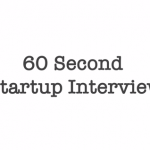Ripples, and The Real-life Effects of Startup Hype
Most trends and waves run the same course. A few crazy visionaries start it, followed by innovators and early adopters, and then the big ones eventually reach the tipping point, spilling over into mainstream consumerism. They become well known and available to the masses – think last autumn’s high street fast fashion punk inspiration overload – and in the same time somewhat less hip for those picking it up in the first place.
On the other hand, more time, practice and eyeballs also mean that we understand the trend much better, hopefully leading to more development and more successful outcomes. In the particular case of startup culture, we are currently somewhere nearing this tipping point. I mean my mum reads about Prezi and Ustream in the Hungarian Marie Claire, tech can hardly get much more mainstream than that. Conversely, the hurrah-optimism and unconditional love for startups and the people starting them slowly gives way to rather realistic concerns, real life struggle & failure stories from founders and sometimes even actual scorn towards newcomers.
I certainly understand nostalgia and see how throngs of people launching themselves into startups for all the wrong reasons can screw up the open, transparent and giving culture of the tribe I ultimately love belonging to. But I’m also an eternal optimist and deeply curious about the broader effects our learning and discoveries will have on humankind and society. As soon as the “this is how you get a rich and famous nerd fast” narrative changes in the mainstream for a constructive one, there are a whole lot of positive takeaways.
Conscientious product development
Somewhat naturally, the most direct influencing happens directly between the companies and their customers. Powered by the Lean Startup movement and the project management and product development methodologies that have sprouted from it, its cornerstone is the build-measure-learn cycle. Huge part of the practical teachings evolve around how can an entrepreneur test and validate ideas, talk to potential customers and why is it silly to throw a lot of money, time and energy into something we are not even sure theres going to be a market for.
The logical and positive consequence is that the ratio of newborn products and services that solve actual problems and answer existing demands is climbing gradually higher. Naturally the process is not super fast. Fledgling startups often loath to talk about their ideas in public – because OMG, somebody is going to steal it! oh, horror, the are going to criticize! – plus practice, time and experience is required to understand our target audience better and master the available communication channels. However, the old attitude of well, worst case we will shove it down their throat by advertising is not acceptable any more, and it’s nothing if not a big win for the economy of the future.
In the same time, better adaptable knowledge about market research means better, more flexible and innovative business models. Sometimes only one more good question and the ability to listen for real is enough to save a company from obscurity. It has certainly worked for example for Blurb, a company publishing hyperpersonalised books and albums. They learned how easy it is to ask the wrong question while interviewing their target audience for the amount of money they would pay for randomly chosen books. It was impossible to get a meaningful answer until they introduced the element of ownership. Because it turns out, we are much more likely and enthusiastic pay for being able to publish our own work of art or memories. Thanks to this customer insight Blurb could focus on personalization and the experience of holding your own book in your hands, and step into a more lucrative market – leading to the multimillion dollar business they are running today.
For conscientious consumers
On the consumers’ side, it is the generation Y – slowly reaching full earning and paying power – and the so called Prosumer type customer shapes the dialogue. Both of them are conscientious consumers, proactive in finding out information and giving feedback. For them it is evident that companies must work transparently, take responsibility, represent values and communicate, moreover collaborate with their customers in very human manner.
They are the ones donating on Kickstarter on indiegogo and the same people can get CEO-s of powerful companies to resign, such as Brendan Eich, freshly appointed leader and co-founder of the otherwise beloved Firefox. (His boycott was a result of a 2008 donation, given to an organisation lobbying against gay marriages.)
So prosumers are not afraid to raise their voice and smart companies are devoting time and resources to understand the causes and motivations moving their customers. These simultaneous efforts influence business models, pricing strategies and causes picked and backed by enterprises. One interesting model is that of Lazy Angel: the application runs in your browser, making it possible to donate money by simply hanging out on the internet. There are interesting changes to come in the realms of online content publishing and micropayment solutions. Where classic publishing houses failed to adapt, amongst others, Flattr offers an alternative to artists looking for ways to earn money for their work on the internet. (Their solution is quite fun too: the Flattr button is universal, the content creator can add it to blogposts, YouTube videos and pictures. The audinece member can set a monthly budget to be spent on the enjoyment of art, push the button any time he likes an artwork and end of the month, the app does the rest, dividing the art-budget between creators equally.)
And while we are creative business models, a recent report from Trendwatching.com on Sympathetic Pricing certainly worth a look. They explore how companies can express their values and commitments through pricing and the examples are very interesting.
Like that of Corendon airlines, who offered half price tickets for those traveling to the Sochi Winter Olympics in order to participate in the gay-right demonstrations or the British Community Shop, powered by Tesco, Marks&Spencer and Asda, selling surplus products only for unprivileged families in very favorable prices.
It is interesting of course how much time it is going to take to make these ideas and methodologies truly mainstream, something that’s widely practices and not regarded as hipster nonsense. However, if we look at how many corporations started to work with startup consultants recently in order to stay relevant, fresh and innovative or pay some attention to how established brands react to new products on the market – think BMW’s car sharing program as an answer to Lyft and Uber – there are reassuring signs certainly.
Image credit: Shutterstock









Leave a Reply